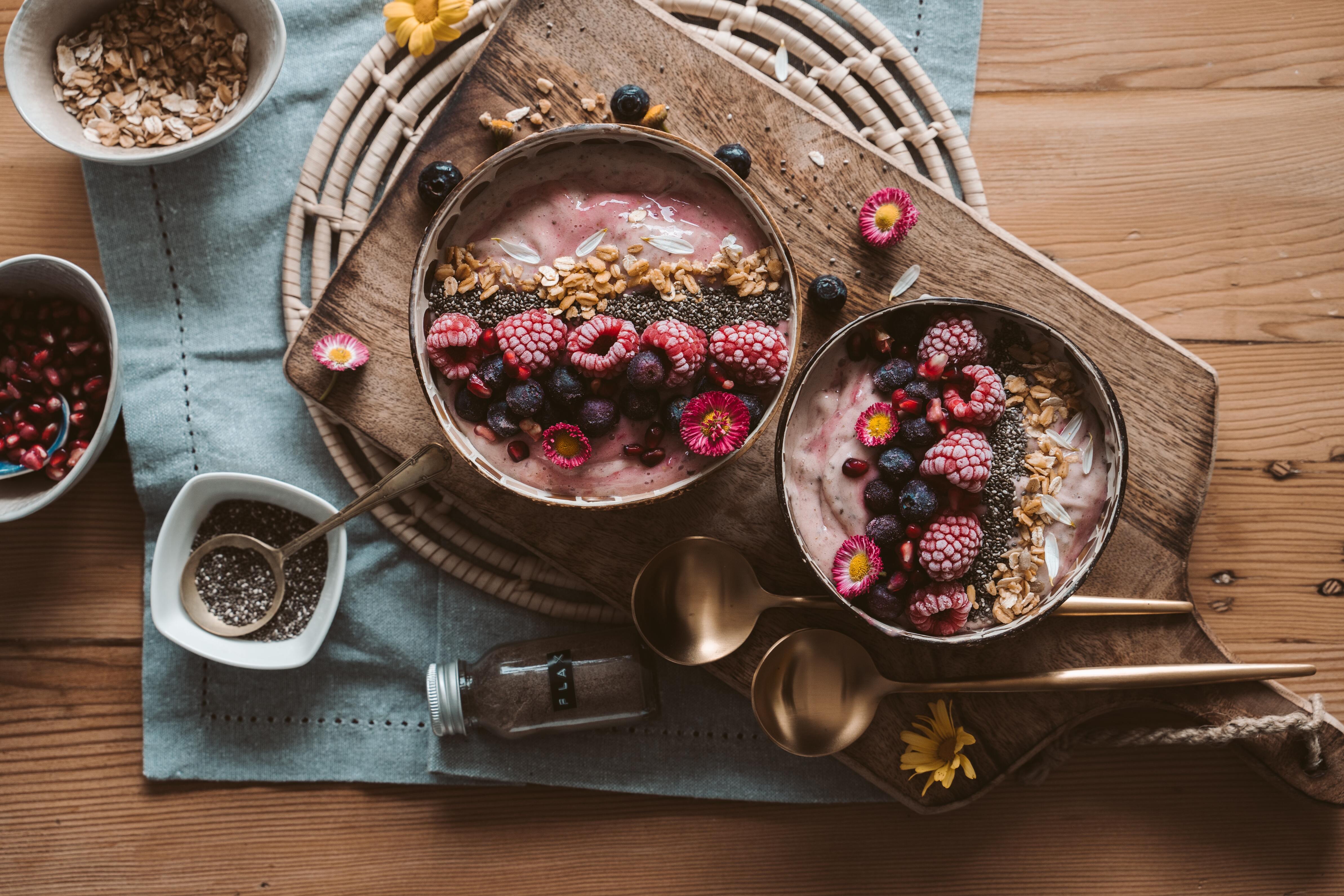
We’re More Cacteria Than We Are Human
Explore the microbiome, support digestion, and cultivate a diverse ecosystem through diet, probiotics, prebiotics, and mindful habits.
A guide to gut health
What houses one of the most complex and abundant ecosystems on the planet? The human gut. Our bodies contain trillions of microorganisms. Yes, trillions. In fact, they outnumber human cells 10 to 1. Everything we eat, drink, touch, lather, and interact with these microorganisms. Inevitably, your diet and lifestyle is either supporting—or hindering—your gut health. Let’s dig into how to support your digestion and top offenders to avoid.
A Gut Health Refresher
It’s not just trendy: gut health—aka the microbiome—is important. And science proves it. An ever-growing amount of research points to the enormous role the gut plays in overall health and wellbeing. A balanced gut is necessary for proper digestion, but it also keeps you healthy in other ways. The gut produces certain vitamins, supports the immune system, fends off unwanted bacteria, and helps regulate hormones. It’s worth keeping your gut well-nourished. Good news! It’s possible to enhance your gut health naturally through diet, supplements, and lifestyle.
How To Support A Healthy Digestive System
Diversify, diversify, diversify. Generally speaking, a diverse microbiome equals a healthy microbiome. This is because the more species of bacteria you have, the more health benefits they can support. In fact, several studies show that between long-living Chinese, Japanese, and Italian people, all cohorts revealed diverse and balanced gut microbiota. Many factors, including the foods you eat, can impact the type of bacteria found in your digestive tract.
- For starters, aim for probiotics. Fermented foods and drinks—like plain yogurt, kimchi, and tempeh—are rich in probiotics. You can also take a probiotic supplement for additional support!
- Along with probiotics, prebiotics enhance the gut’s function. Think of prebiotics as a food source for your gut’s microorganisms. Many fruits, vegetables, and whole grains contain prebiotics. Resistant starches are also prebiotics. For example, opt for cooked and cooled potatoes and rice. The cooling turns some of the digestible starches into resistant starches.
- Furthermore, prioritize the Mediterranean diet. There are a variety of reasons to eat like the Mediterraneans do, but mainly because of the emphasis on vegetables, fruits, beans, and legumes. These are high-fiber, gut-friendly foods that promote the growth of beneficial bacteria.
- Minimize environmental toxins. Everything from pollution to synthetic chemicals and plastics prevent gut microbes from performing their important functions. Take inventory of your cleaning products, makeup, candles, etc. to determine if they need to be swapped for a cleaner alternative. Your gut will thank you!
wildbrine kimchi
One of our favorite probiotic-rich foods is kimchi, especially this one from wildbrine. Dip your fork into fermented and plant-forward foods that boost digestion, immune health, and overall well-being. Add wildbrine kraut to your favorite sandwich, kimchi to your morning avocado toast, or one of their dips to a bowl of chili. Cheers to a well-fed gut.
Chew, chew, chew
Fun fact: did you know that digestion actually begins before you take your first bite of food? This is called the cephalic phase of digestion. It’s kicked off by the mere sight or smell of food. In many ways, this gets the body primed to absorb nutrients.
Speaking of absorption, chewing (rather than quickly inhaling) your meals is essential for optimal digestion. Chewing reduces stress on the esophagus, helps the stomach metabolize food, and more. While there’s no hard and fast rule for how many times you need to chew, a good rule of thumb is to ensure your food loses all its texture before swallowing.
We love hearing about your experiences with beeya!

Thank you Bethany for trusting us and sharing your experience! We are beyond grateful!
